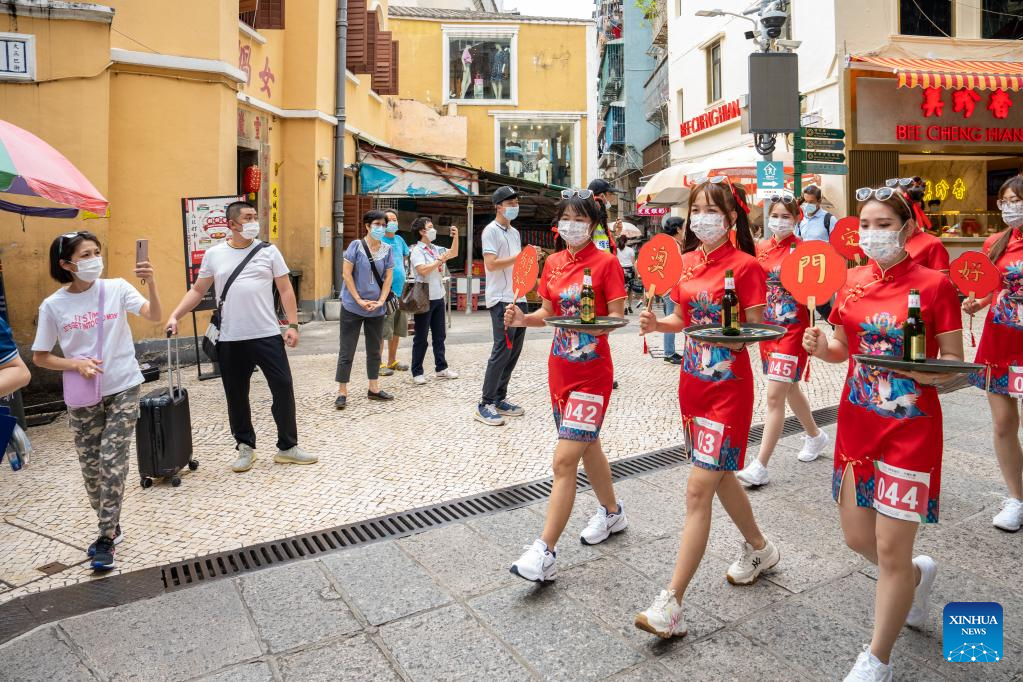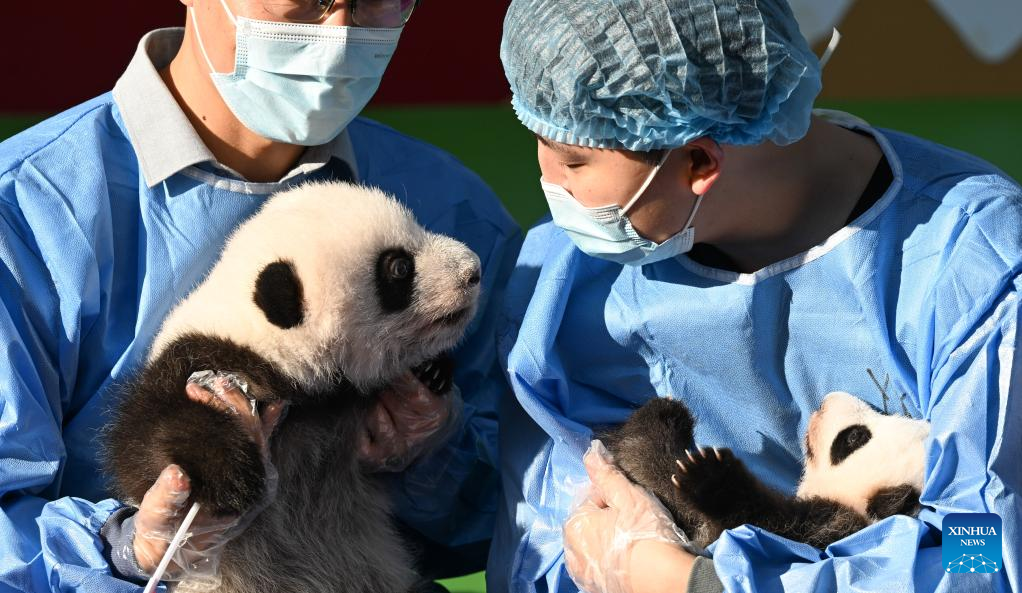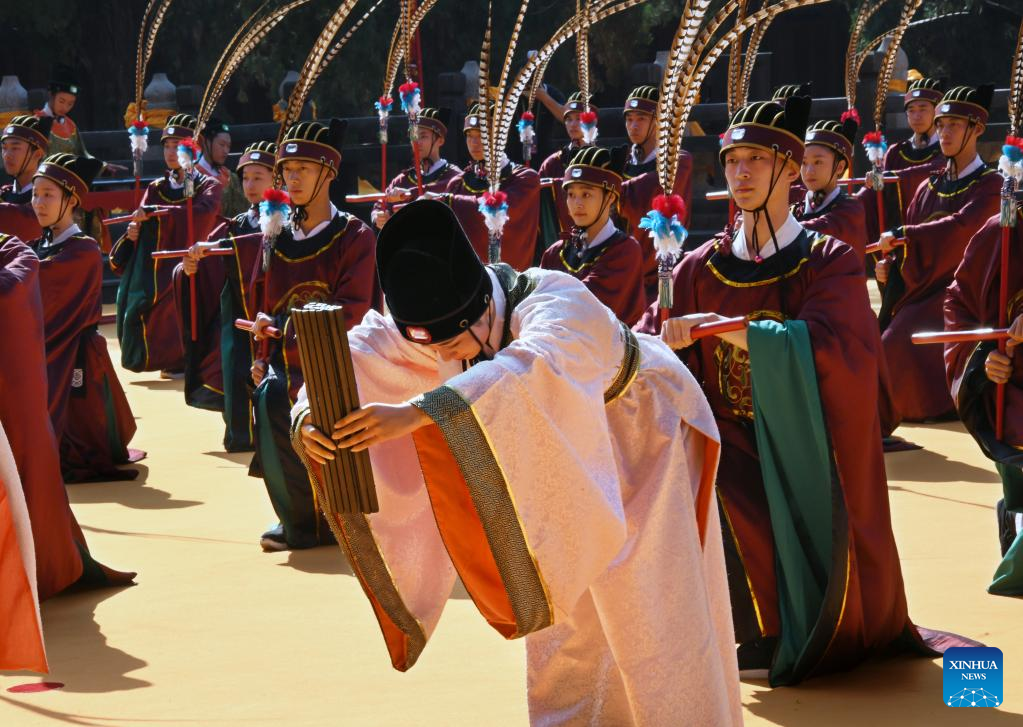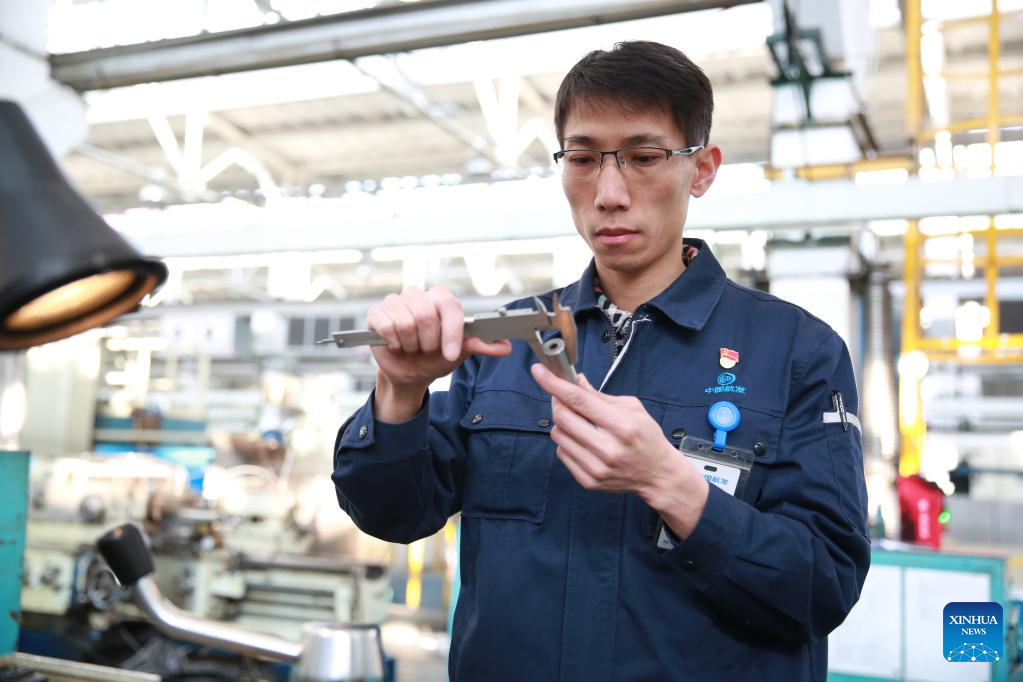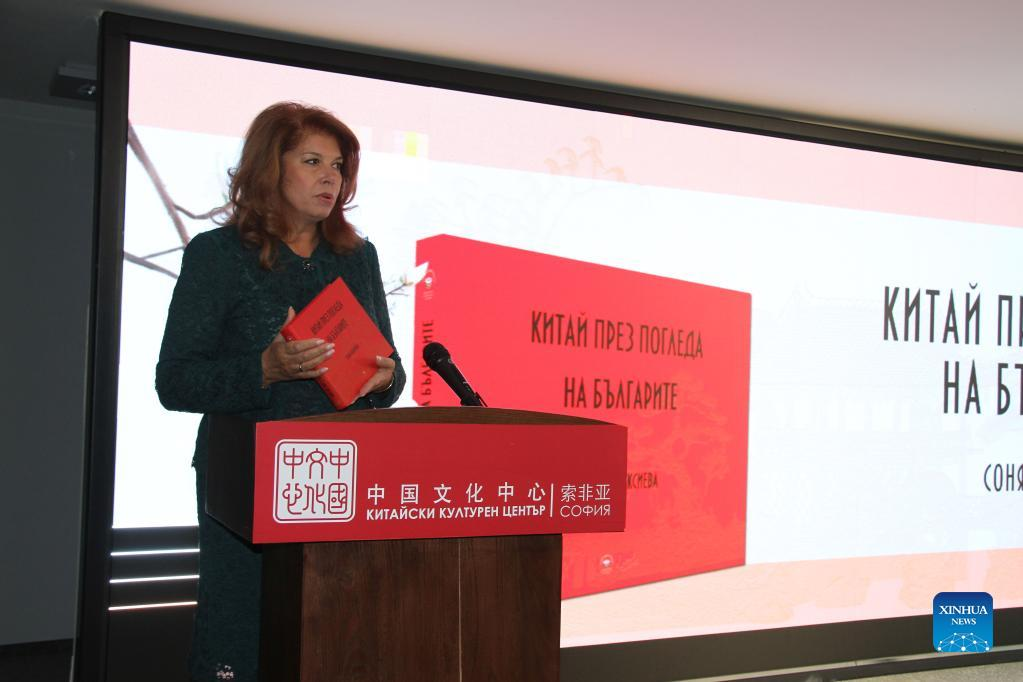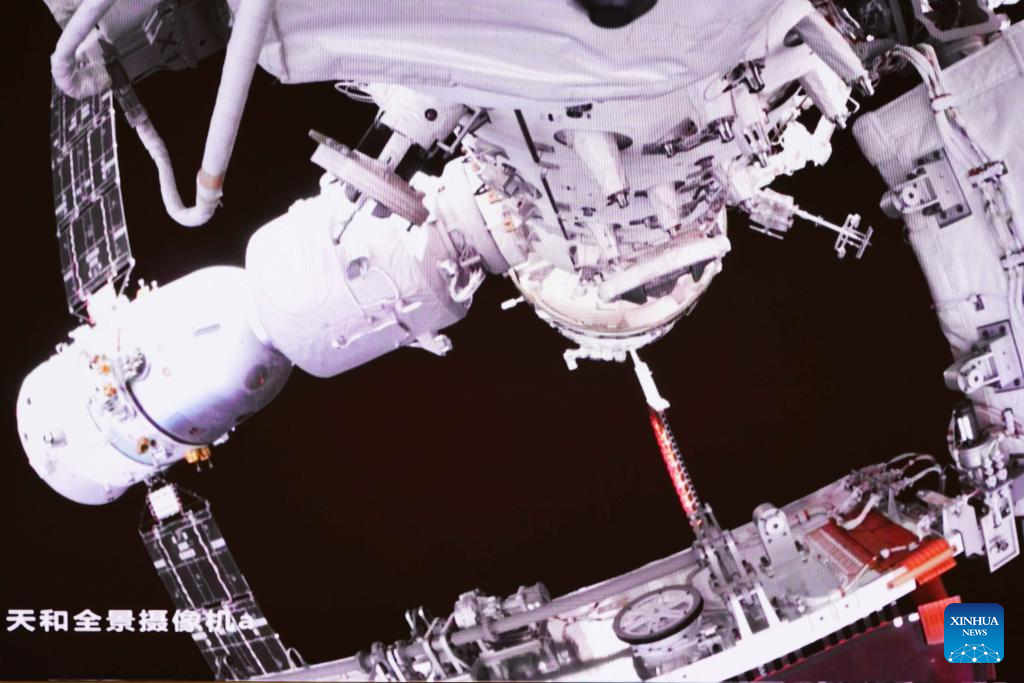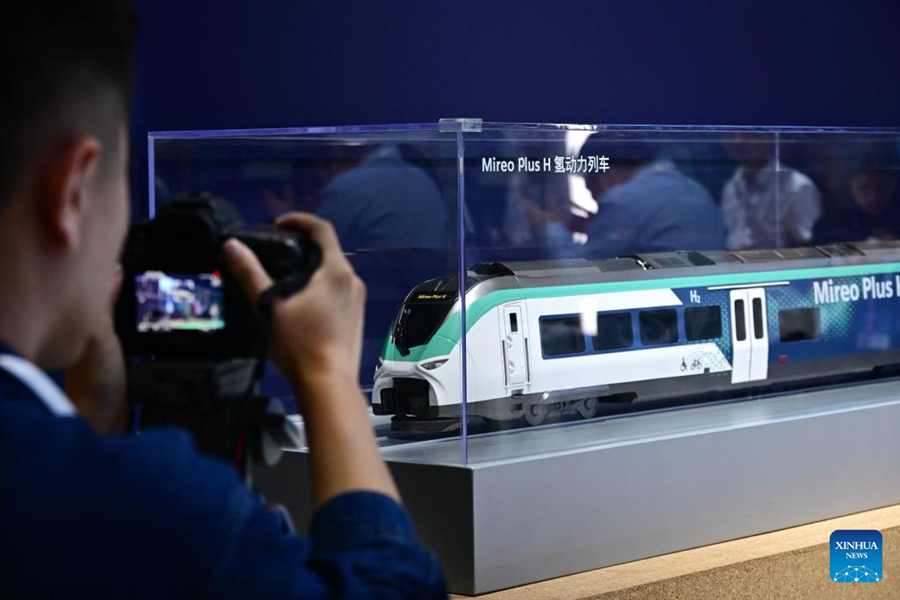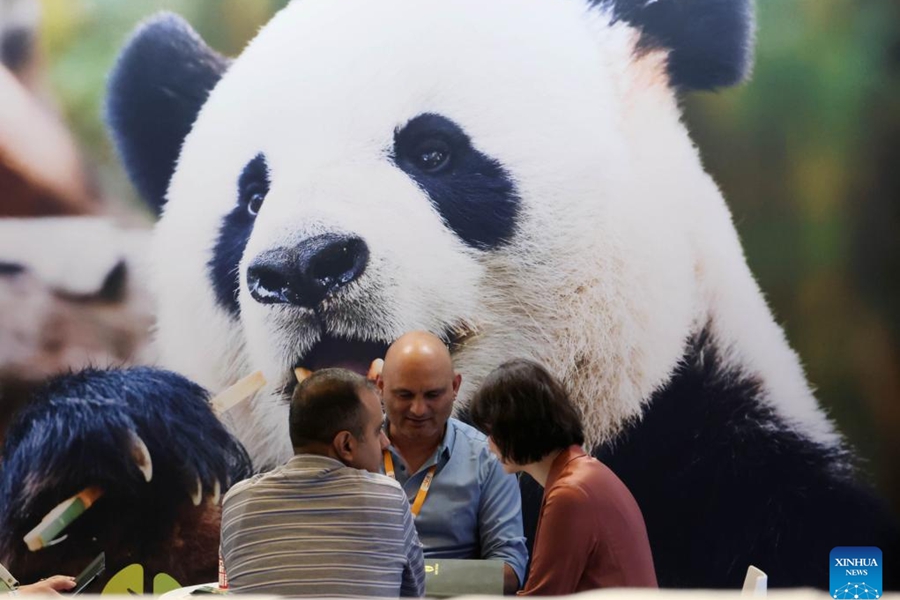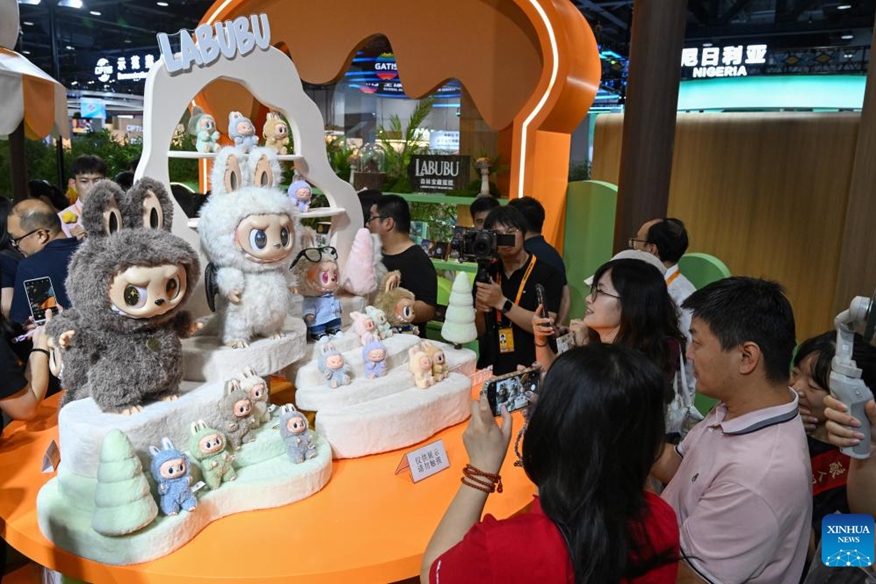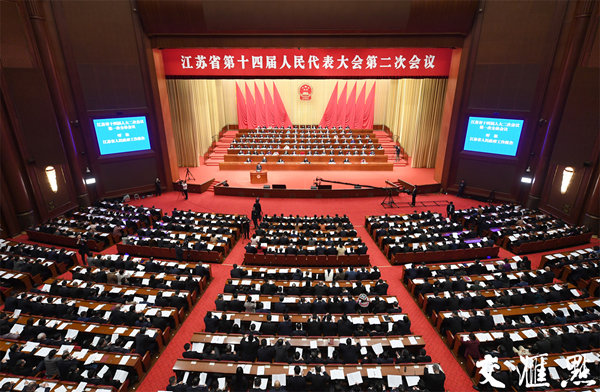
(Photo from Xinhua Daily)
The second session of the 14th Jiangsu Provincial People's Congress opened in Nanjing on January 23.
Xin Changxing, secretary of the CPC Jiangsu Provincial Committee presided over the meeting. Xu Kunlin, governor of Jiangsu Province, delivered the government work report, which reviewed the work of last year, outlined overall requirements and goals for 2024 and also emphasized the priority tasks ahead.
In 2023, Jiangsu went all out to take the national lead in promoting economic recovery and growth, strengthened deep integration of sci-tech innovation and industrial innovation, and coordinated the development of urban and rural areas. The province also vigorously advanced the construction of ecological civilization, furthered the reform and opening up, and enhanced grassroots governance and people's livelihood.
As 2024 is a crucial year to meet the targets outlined in the 14th Five-Year Plan, Jiangsu has set out a range of tasks to achieve the growth rates of GDP and general public budget revenue at more than 5% and about 4%, respectively, while ensuring the per capita disposable income of residents increases in line with GDP growth.
Jiangsu also plans to create over 1.2 million new jobs in urban areas, increase total retail sales of consumer goods by about 5.5%, and see positive growth in foreign trade and a 2% decrease in terms of energy consumption per unit of GDP in 2024.
On hearing the report, Yang Dongsheng, chairman of Xuzhou Construction Machinery Group (XCMG), addressed the group’s plan to build intelligent manufacturing demonstration factories and a robust intelligent supply chain to accelerate the formation of new quality productivity.
Zhang He, vice-chairman of the Suzhou Committee of the Chinese Peasants and Workers Democratic Party (CPWDP) and deputy director of the Suzhou Ecology and Environment Bureau, said the city will carry out in-depth research, especially focusing on the protection of the Yangtze River and the new round of Taihu Lake renovation, with the aim of building a modern city featuring harmony between humanity and nature.
Chen Honghong, director of the Jiangsu Provincial Healthcare Security Administration, said more than 98.5% of Jiangsu residents were covered by basic medical insurance programs. The administration plans to further improve the medical insurance system, effectively reducing the burden of medical expenses.
Lin Bin, vice-mayor of Xuzhou City, noted that China's urbanization still falls behind developed countries and solid efforts are needed to advance the people-oriented urbanization process. "We will continue to boost the development of education, healthcare, elderly care and other public services, promote the renovation of the city’s
old neighborhoods, and make greater efforts to let the people enjoy a high quality of life.”
Sun Hubing, deputy director of the Jiangsu Provincial Market Supervision Administration, emphasized the efforts to offer one-stop service, facilitate financial services for enterprises, and support enterprises in R&D and brand management.
In response to the call for developing cultural programs and the cultural sector in the report, Ge Juan, chairwoman of the Suqian City Quyi Artists Association, pledged to preserve the cultural heritage, cultivate talents and create more works in telling stories of Jiangsu.
A total of 770 deputies to the Jiangsu Provincial People's Congress attended the meeting. Representatives of expats, foreign offices and foreign-invested enterprises were also invited to attend the meeting as observers.

